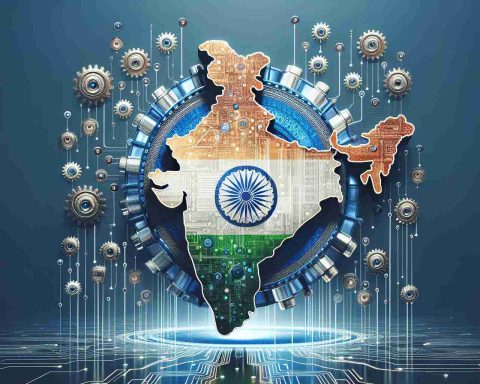The United Nations General Assembly (UNGA) resolutions, historically significant for guiding international cooperation, are taking on new dimensions in the era of digital transformation. What exactly is a UN General Assembly resolution? These are formal decisions or expressions of opinion adopted by the assembly, usually addressing global issues with widespread implications.
Although they are not legally binding, UNGA resolutions carry substantial moral weight, often influencing international norms and prompting legislative changes in member states. They serve as a platform for voicing collective goals, providing a consensus on pressing global matters, such as human rights, environmental sustainability, and economic development.
In the context of emerging technologies, these resolutions are rapidly evolving to address new challenges and opportunities presented by the digital age. The proliferation of artificial intelligence, blockchain, and quantum computing increasingly demands international frameworks for regulation and cooperation. Consequently, recent resolutions focus on promoting equitable access to technology, safeguarding digital privacy, and fostering cybersecurity collaborations.
Looking to the future, the role of UNGA resolutions may expand further as they adapt to the accelerating pace of technological change. As nations grapple with issues such as ethical AI governance and digital inequality, these resolutions could catalyze pioneering international treaties or agreements. Thus, they hold the potential not only to reflect the current state of global affairs but also to actively shape the future directions of our interconnected world, underscoring their evolving significance in the digitized landscape.
How UNGA Resolutions are Shaping the Digital Future
The United Nations General Assembly (UNGA) continues to play a pivotal role in global governance by adopting resolutions that address the increasingly complex challenges of our digital age. As technology advances at a rapid pace, UNGA resolutions are expanding in scope and impact, focusing on critical areas such as artificial intelligence, blockchain, and cybersecurity. This article explores the new dimensions and potential future roles of these resolutions.
Innovations and Trends: Addressing Digital Challenges
Recent trends in UNGA resolutions highlight a concerted effort to adapt to and regulate emerging technologies. The assembly has recognized the importance of equitable access to technology and the protection of digital privacy. Consequently, resolutions are increasingly aimed at creating comprehensive international frameworks that ensure fair technology distribution and robust data protection measures.
One significant innovation is the incorporation of artificial intelligence ethics into resolutions. These efforts are designed to ensure that AI development promotes inclusivity and adheres to universal ethical standards. Similarly, the rise of blockchain technology has prompted the UN to explore its potential for enhancing transparency and efficiency in international transactions while recognizing the need for regulatory oversight.
Comparisons: UNGA vs. Other International Bodies
While the UNGA is at the forefront of addressing global digital issues, other international bodies, such as the OECD and WTO, also play roles in shaping technology policy. The UNGA’s resolutions tend to focus on broad, equitable goals and moral standards, while organizations like the OECD may offer more specialized economic and technological guidelines.
These differences underscore the need for collaborative synergy among international bodies to tackle digital challenges holistically. By aligning their efforts, these organizations can ensure comprehensive strategies that address the multifaceted nature of digital transformation.
The Future: Potential Roles of UNGA Resolutions
As technological change accelerates, UNGA resolutions may evolve from influencing norms to catalyzing concrete international agreements. With an increasing focus on ethical AI governance, digital inequality, and cybersecurity collaboration, future resolutions could lead to pioneering treaties that set binding global standards.
By actively shaping international norms and championing cooperative frameworks, these resolutions might not only mirror the current state of global technology affairs but also pave the way for strategically managing future advancements. Such forward-thinking resolutions could become key instruments in promoting a balanced and inclusive digital era.
Security Aspects: Protecting Digital Privacy
With digital privacy emerging as a critical concern, UNGA resolutions emphasize the need for global cooperation in cybersecurity. By advocating for international partnerships, the UN aims to enhance the capacity of nations to protect their citizens’ data against cyber threats. These efforts are crucial in building trust and ensuring the security of the digital infrastructure that underpins modern society.
The evolving landscape of technology, marked by rapid advancements and emerging threats, underscores the importance of the UNGA’s proactive approach. By expanding its focus and adapting its resolutions to address these changes, the UNGA reaffirms its commitment to steering global cooperation towards a secure, equitable, and sustainable digital future.












